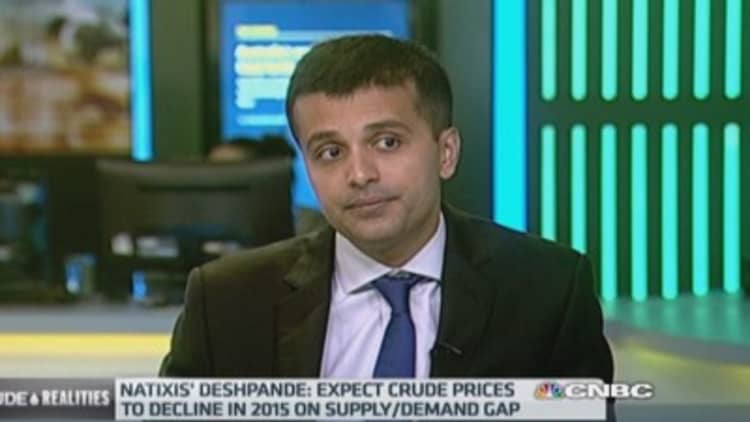One of the most important areas captured by Islamic State of Iraq and Syria (ISIS) looks as though it's back in Western-backed hands.
Iraqi security forces have re-entered the key Baiji oil refinery, which has been held by ISIS since June, in what the Iraqi General Abdul Wahab al-Saadi said to state media could be the "main key in liberating each span of Iraq".
Read MoreCNBC Explains: Forecasting global energy demand
The refinery is also one of the closest points to Baghdad captured by ISIS.
Yet this may not be the turning point in the battle against ISIS many Western leaders are hoping for.

'Acute insecurity'
While the West, with some allies from the region and Europe, has taken on ISIS by launching air strikes and aiding local non-ISIS groups, the extremist Islamic faction will remain "a source of acute insecurity and instability in Syria, Iraq and the Middle East at large in 2014, 2015 and likely beyond," analysts at Maplecroft, a risk consultancy, warned in a research note.
There has already been plenty of underestimation of ISIS, to the detriment of security in the region.
ISIS – dubbed the world's richest terrorist organisation after a series of lootings of military assets and banks and oil field seizures – has emerged from the shadow of al-Qaeda this year and is now viewed as one of the biggest perceived threats to international security.
For Western powers, as well as the tragic deaths of captured journalists and aid workers, there is troubling evidence of young ISIS jihadis travelling from the U.S. and Europe, where they were born or educated. The group's reputation, for brutal retaliation against dissent, may also keep local populations in regions it has occupied from revolting.
Oil over troubled waters?
However, one of the consequences of sub $100-a-barrel oil, is that ISIS is likely to be getting much less than the standard Brent crude price for oil extracted from the fields it controls in Syria and Iraq.
And the potential for disruption by ISIS in the region seems to be ignored by oil traders, with oil continuing at sub-$80 a barrel levels.
This does not necessarily mean that the Western powers are seen to have the ISIS situation under control, but that there are other factors at play. The burgeoning success of shale oil extraction means that supply from the U.S. is now outstripping that coming from politically riskier countries like Iraq, Iran, Syria and Libya.
Which side to pick?
One of the real problems for the U.S. and its allies is which of the competing groups to back in the fight against ISIS.
In Syria, the regime of President Bashar al-Assad, ISIS, and a number of more moderate armed opposition groups, are all competing for territorial control.
Iraq's Kurdistan Regional Government (KRG) has taken the opportunity to try and push for greater independence from Baghdad – and even a fully independent state. It now controls Kirkuk, an oil-rich province whose ownership has been disputed for many years.
The turbulent history of disputes between Sunni and Shi'ite Muslims in Iraq, which Western intervention was unable to resolve and ISIS was able to exploit, is unlikely to be resolved soon either. All this suggests the U.S.'s plan to "degrade and ultimately destroy" ISIS is far from fulfilment.
- By CNBC's Catherine Boyle







